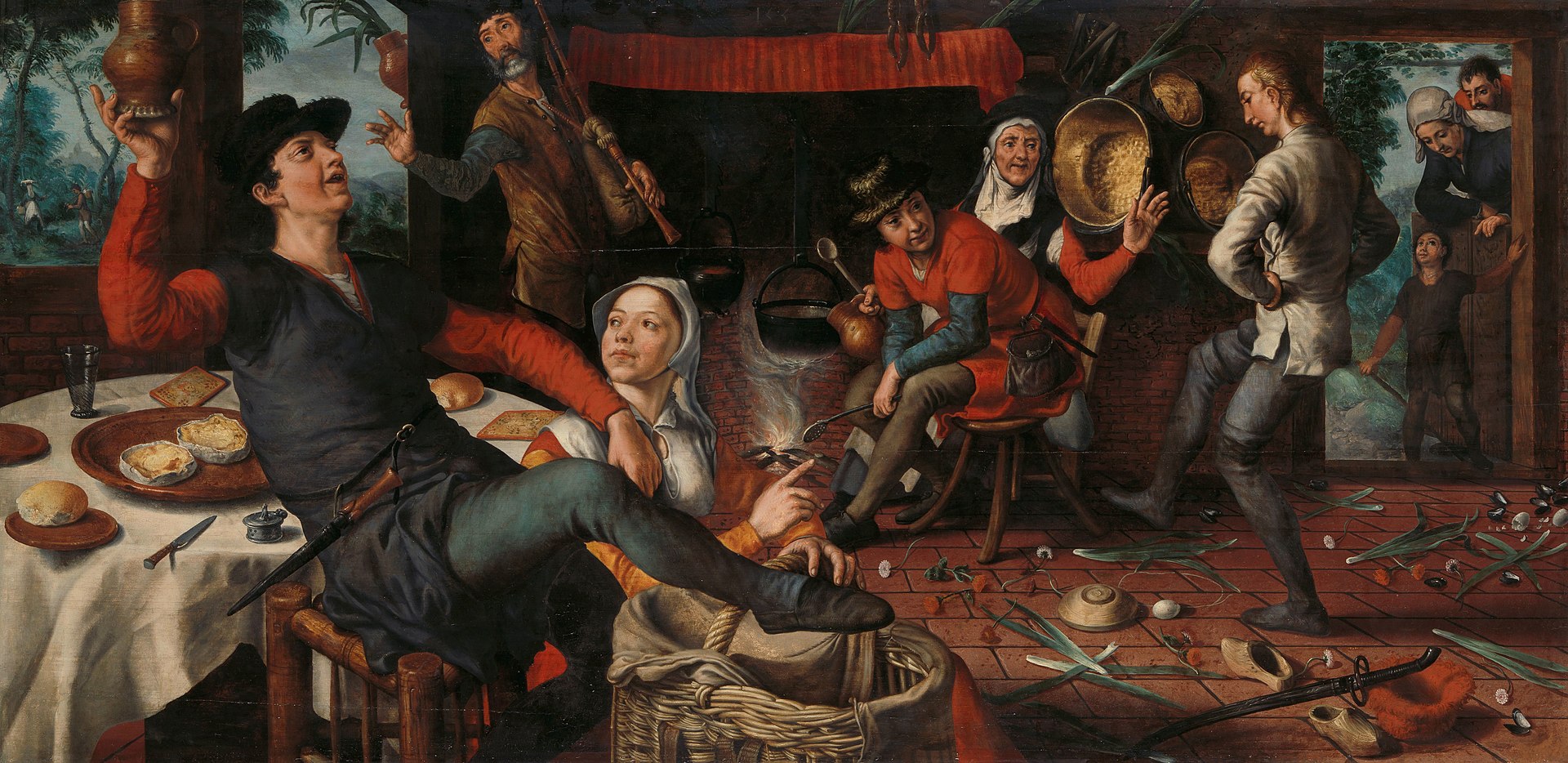Each language has proverbs, those simple, concrete sayings that crystalize common sense. Proverbs are a genre of folklore. They were created by people and passed from one generation to another as an oral tradition. They reflect the values and unique experience of the nation, and being the accumulated wisdom of many, they are a big part of culture. It would be logical to assume that, since cultures are different, proverbs should be different, too. Yet, quite a lot of proverbs exist in more than one language. Sometimes it happens because people borrowed proverbs from another language or from some common sources, such as the Bible, and sometimes similar proverbs simply show that different cultures made similar observations.
Russians love proverbs. Witty words have always been appreciated in the Russian conversational tradition. Though Russian and English cultures have many differences, there are dozens of proverbs that exist both in Russian and English. Sometimes, they are similar to a word, and sometimes, they express the same meaning in completely different ways, which makes it even more interesting. Here are nine popular English proverbs and their Russian analogues.
1. “Strike while the iron is hot,” the proverb that suggests acting on an opportunity promptly, while conditions are favorable, in Russian would be “Куй железо, пока горячо”, literally, “Forge the iron when it’s hot.”
IPA: /kuj ʐɨˈlʲezə | pɐˈka ɡərʲɪˈt͡ɕɵ/
2. “Rome wasn’t built in a day,” a proverb saying that it takes time to create something big, got localized in Russian: “Москва не сразу строилась”, literally, “Moscow wasn’t built at once.” Other cities in Russia may have a history as long and rich as Moscow, but the capital city takes a special place in the Russian culture, and thus it is in the proverb. Does your language have a similar saying, with the capital city in the place of Rome?
IPA: /mɐskˈva nʲɪ‿ˈsrazʊ ˈstroɪləsʲ/
3. “Still waters run deep.” The English proverb teaches that a person with a calm appearance may have strong inner emotions, character, and intellect. A similar Russian proverb says, “В тихом омуте черти водятся”, literally, “In a quiet pool devils dwell.” Though the Russian version is close to the English one, the highlight there is on the turbulent desires that may be hidden beneath a placid exterior. The Russian proverb is rather a warning and teaches not to trust appearance.
IPA: /ˈf‿tʲixəm ˈomʊtʲe ˈt͡ɕertʲɪ ˈvodʲɪt͡sə/
4. “The early bird catches the worm.” Competitive cultures produce proverbs praising success: The one who arrives first has better chances to succeed. But does that proverb suggest that one should get up early in order to achieve the goals? Many cultures consider early wake-ups a virtue, and staying in bed late decadence, even today, in our post-agrarian and post-industrial world. The Russian version of the saying definitely promotes this idea: “Кто рано встаёт, тому Бог подаёт”, literally, “He who rises early, to him God gives.” Interestingly, the competition part disappeared in the Russian proverb completely.
IPA: / kto ˈranə fstɐˈjɵt | tɐˈmu box pədɐˈjɵt/
5. “You can’t make an omelet without breaking a few eggs.” Some sacrifices are inevitable on the way to achieving something big. The Russian saying is quite blunt, too: “Лес рубят — щепки летят”, literally, “When they cut the forest, chips fly around.” The Russian National Corpus provides a lot of examples when politicians use this proverb to excuse collateral damage, costly or deadly mistakes, and casualties. Language rationalizes sacrifices. It should be in the “Political Rhetoric 101” textbook: Refer to the “common wisdom” and “traditional saying”, and fewer people will question your deeds.
IPA: /ˈlʲes ˈrubʲət | ˈɕːepkʲɪ lʲɪˈtʲat/
6. “You scratch my back, and I’ll scratch yours,” a favour for a favour. Russian borrowed the saying from Latin, “manus manum lavat”, and translated it literally: “Рука руку моет”, “One hand washes another.” The saying refers to corruption and collective responsibility among corrupted individuals, normally, authorities.
IPA: /rʊˈka ˈrukʊ ˈmo(ɪ̯)ɪt/
7. “A friend in need is a friend indeed.” Friendship is fundamental in any human society, and many cultures have plenty of proverbs about it. While the English saying is nicely rhymed, the Russian version of it is short and straightforward: “Друг познаётся в беде”, literally, “A friend is proven in time of trouble.”
IPA: /ˈdruk pəznɐˈjɵt͡sːə v‿bʲɪˈdʲe/.
8. “А bad workman always blames his tools.” This innocent saying about poor skills and excuses sounds much more “adult” in Russian. It is “Плохому танцору и яйца мешают”, literally, “A bad dancer is impeded even by (his own) balls.” Some sources suggest that the correct translation should be, “A bad dancer is impeded even by eggs.” In Russian, a colloquial word for testicles is “яйца”, eggs. What’s is it with dancers and eggs? Some researchers believe that the saying was borrowed from German, and its “Eiertanz”, egg dance, an idiom for tortuous maneuvering. I didn’t find that explanation plausible. Even if it is true, in the modern Russian, the saying has nothing to do with dairy products.
IPA: “/plɐˈxomʊ tɐnˈt͡sorʊ i ˈjæjt͡sə mʲɪˈʂajʊt/
9. “When pigs fly,” say English speakers when they mean “never”. It is very unlikely for pigs to develop wings, but Russians went further. In Russian, the unlikely event after which something may happen is when the crawfish whistles on the mountain, “Когда рак на горе свистнет”. After all, a pig may fly for some time if one uses it in a catapult. Finding a whistling crawfish is much harder, not to mention convincing the unique crustacean to go up to the mountain to perform the action.
IPA: /kəɡdɐ‿ˈrak nə‿ɡɐˈrʲe ˈsvʲisʲnʲɪt/
I hope you enjoyed reading this and learned something useful today!
Illustration: Pieter Aertsen, Der Eiertanz (1552)

